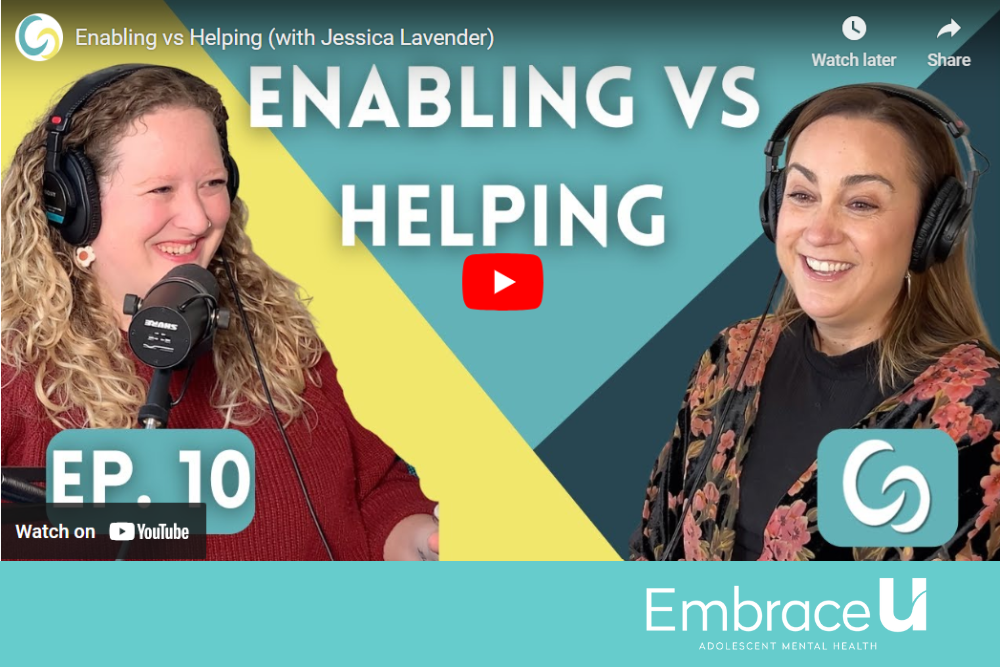“He never listens!” “She won’t clean her room. I have asked 100 times!” As a parent, these complaints might sound familiar. When your child doesn’t listen to you, you can find yourself flooded with feelings of frustration and anger. What once was a simple request becomes a full-blown argument in a matter of minutes. Parent-child conflict in the adolescent years is a frequent problem found in families, according to UT researchers.
The research team discovered several reasons for this. As your child becomes more independent, they rely less on their parents for basic needs. Your child may become more interested in their friends and outside influences. Parents may wonder why their children are not listening to them or communicating as much. It turns out that it is quite common and normal for this to happen.
It’s Biology, not Behavior
In the past, we have blamed a child’s inattentiveness on teenage rebellion. It seems more likely to be a developmental milestone. Recently the Journal of Neuroscience published a study in which researchers studied children of different ages. They measured their brain’s responses to their mother’s voices. The results were so clear-cut that the researchers were able to tell the age of the child based on MRI activity.
Younger children up to late teens listened to a variety of voices, including their own mother’s voice. Their brain activity was recorded as they heard each voice. Each child’s brain activity increased upon hearing their mother’s voice. But the location of increased brain activity differed by age. Younger children’s brains lit up in the areas of rewards and acceptance. In contrast, after hearing their mother’s voice, the child’s brain activity was lower in rewards and acceptance. Yet when they heard a stranger’s voice, the child’s brain activity increased in rewards and acceptance. Researchers theorized that the difference in brain activity was related to developmental milestones. As your child grows more independent, they begin to separate from their families. They no longer look to their parents for social acceptance but to the outside world. Their brain tunes out their parents.
This research is useful for a couple of reasons. First, you can exhale knowing that your child might not be rebelling after all. They are likely going through documented biological changes, and this phase will pass. Second, understanding that your child’s communications needs are changing gives you insight. With this insight, you can learn how to communicate with your child in ways that matter.
One way to improve communication with your child is to practice active listening. Dr.
How Active Listening Affects Your Child
How parents listen to their children has a remarkable impact on the quality of communication between parent and child. Several hundred adolescents took part in a study about parent-child communication. They watched several videos and completed a thought survey afterward.
The videos were of a parent and child having a hard conversation. In one video, the parent was distracted and disengaged during the conversation. In the second video, the parent was focused on the child and actively listening. Adolescents answered a survey after the video. The results showed that all adolescents felt more engaged with the active listening parent. They wrote that they would be more likely to share with the actively listening parent about their life and problems.
Attentive listening benefits adolescents in that they feel heard and seen. Something important to anyone, but particularly in adolescence. Darby Fox, LCSW, child and adolescent family therapist and author of “Rethinking Your Teenager”, states that the teenage years are a sensitive time for people, and they worry about how others, “including their parents, might hear and perceive them.”
Gail Gutierrez, LCSW, echoes the importance of attentive listening. She says adolescents still need their parents’ “attention, support, and love.” She goes on to say that “being listened to is a key emotional need for adolescents.”
How to Actively Listen
Attentive or active listening is an intentional skill. The goal of attentive listening is to bring parents and children closer. There are several ways to practice active listening. Verywellfamily recommends the following guidelines:
- Acknowledge their willingness to share with comments such as “thank you for sharing that with me,” “that must have been hard for you to share,” or “I’m so glad to talk about this with you.”
- Avoid distractions (put your phone away and try where possible to talk when you can focus solely on your child).
- Avoid harsh judgments. Comments such as “You were silly to do that” or “I can’t even look at you right now” should be avoided.
- Do not interrupt. Allow space and silence for your kids to talk.
- Keep your facial expression and body language open, gentle, and accepting.
- Look at the situation from your child’s perspective and use a response such as “I can see that you tried/felt/thought….”
- Maintain eye contact.
Using these methods during talks with your child will show them that you care and are invested in them.
More ways to Get Your Child Talking
To listen to your child, they must be willing to talk in the first place. There is no fool-proof way to guarantee your child will want to talk in every situation. But Raising Teens Today provides some suggestions to encourage conversation with your child.
- Ask Open-Ended Questions: Avoid questions with a “yes” or “no” answer and instead ask, “What did you think of…” or “Why do you think….”
- Don’t Take it Personally: If your child is not in the mood for a talk, do not let them see you’re upset. Instead, smile and try again later.
- Go For a Drive: Side-by-side activities make talking easier for some people. Prolonged eye contact might make your child uncomfortable.
- Let Them Be the Smartest Person in the Room for a Change: If your child has a passion, ask about it. Avoid correcting any of their ideas and enjoy their enthusiasm over a subject.
- Limit the Lectures: Adolescents are biologically averse to parent voices. People, in general, dislike lectures, and your child does as well.
- Pick Your Battles: Respect your child’s need to be an individual. Give them space to make mistakes and learn from them.
- Respect Their Need for Privacy: As your child becomes more independent, they will have private thoughts and feelings. Allow them to share what they want as they are comfortable.
- Timing Is Everything: Like in any relationship, timing plays a key part. If your child is not in the mood to talk, try at a different time.
- Throw Some Fun into the Mix: Plan a fun family activity where everyone can relax. A change of scenery or friendly competition might help the conversation.
Adolescence is a time of many changes. Many children do start to grow up and away from their parents. Yet, as the experts above said, children need their parents’ love and listening ear.
If you are struggling to connect with your child or your child is facing mental health issues, embrace U is here to help. We support, treat, and listen. We empower adolescents age 10-18 to discover healthy communication skills and habits for lifelong mental wellness. Contact us at 615-236-8619. You are not alone!
Topics Covered:
- Active listening
- Adolescent therapy
- Child depression
- Child therapy
- Communication skills
- Family therapy
- Listening
- Mental health
- Parent-child
- Parenting
- Teen depression










